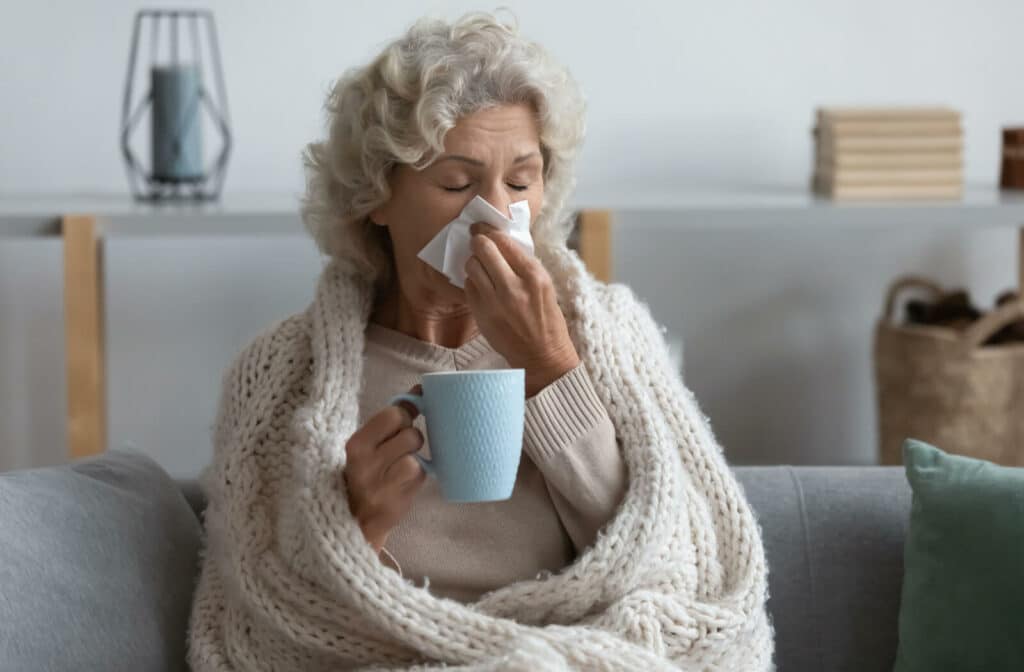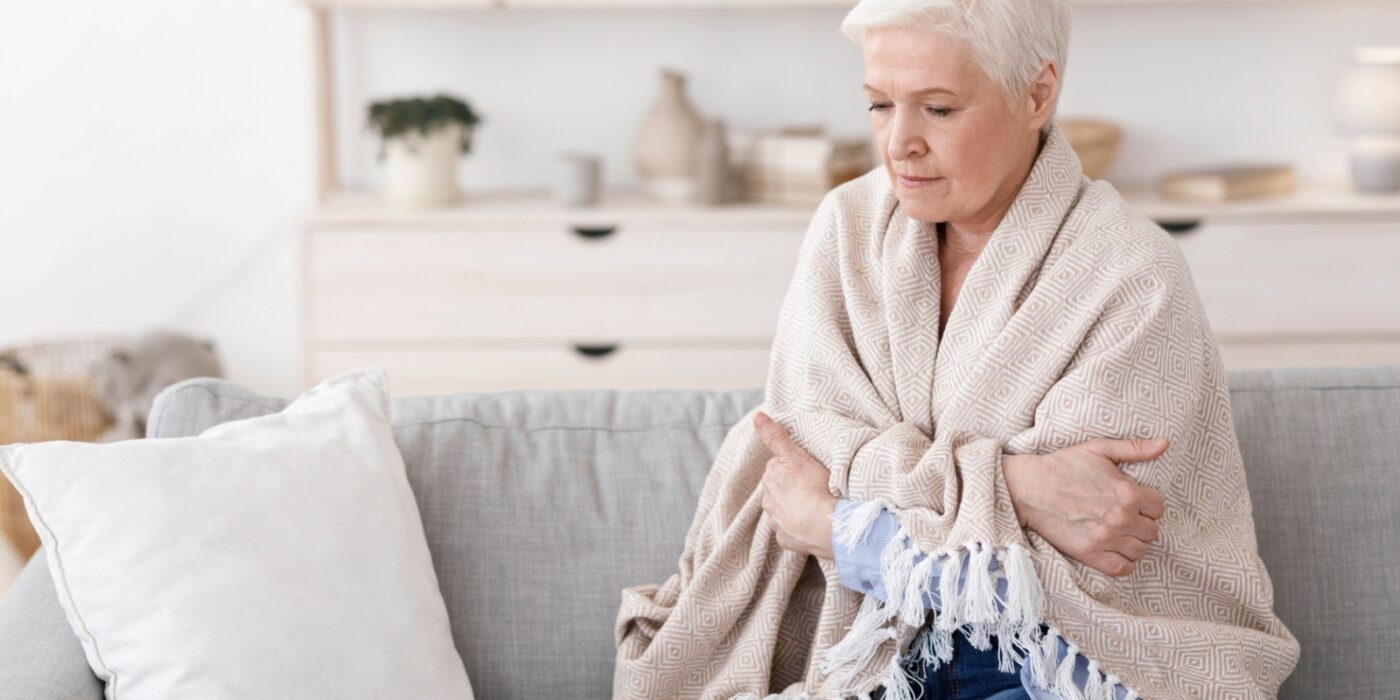Why Do Seniors Feel So Cold?
Aging sometimes poses unique new changes. Even in the summer, many older adults often deal with problems like cold sensitivity. Without the right support, this can quickly become frustrating. So, why do seniors feel so cold—and how can you help your loved one feel more comfortable in their everyday life?
Older adults often notice increased cold sensitivity due to a decrease in the body’s ability to regulate internal temperature. Meanwhile, changes in circulation, metabolism, lifestyle, and other such factors can make the cold more noticeable.
Why Are Older People Always Cold?
The sensation of constant cold becomes increasingly frequent over time. This is entirely natural—the body simply changes with age. Aging is the primary factor behind this sensitivity, but it’s not the only one.
Slower Metabolism
One key change with aging is a slower metabolism. Metabolism generates body heat, and when it slows down, seniors may not produce enough heat to stay warm. This is a natural part of getting older, but it often makes older adults susceptible to even minor chills.
Thinner Fat Layers Under the Skin
The insulating fat layers that help maintain warmth thin over the years. Thinner skin also provides less protection against the cold, making seniors more prone to feeling chilly, even in moderate weather.
Poor Blood Circulation
Proper circulation helps blood reach all parts of the body to keep them warm and healthy. But in older adults, this system may not function as efficiently as it once did. Common circulatory issues like diabetes or heart disease can amplify cold sensitivity, especially in the hands and feet.
Hormonal Changes
The thyroid, a gland that helps regulate body temperature, can become underactive in seniors, leading to hypothyroidism. With this condition, the body struggles to generate and distribute warmth effectively, leaving seniors perpetually cold.
Medications
Certain medications taken by older adults can also increase cold sensitivity. Some common medications known to affect temperature sensitivity include:
- Beta-blockers
- Sedatives
- Antidepressants
- Cancer treatments
If you suspect your loved one’s medication is linked to their frequent chills, visit a healthcare professional to discuss your alternatives.
Chronic Health Conditions
Underlying health conditions can significantly contribute to cold sensitivity. These conditions include:
- Anemia, which reduces oxygen delivery to tissues and causes cold extremities.
- Diabetes, which affects circulation and can leave feet and hands feeling icy.
- Kidney disease, which disrupts the body’s ability to regulate warmth.
Addressing these conditions can help reduce constant chills in seniors.
Decreased Muscle Mass
Seniors gradually lose muscle mass due to the effects of aging or inactivity. This is an age-related condition called sarcopenia. With less muscle to generate body heat, their natural warmth decreases over time, leaving a person more vulnerable to the cold.
Is It Normal for Seniors to Feel Cold All the Time?
It’s natural for older adults to feel colder than they did when they were younger. Slower metabolism, reduced muscle mass, and circulation issues are all common. However, extreme or persistent cold sensitivity may signal an underlying issue.
Some signs indicate a serious underlying problem, such as:
- Persistent fatigue or weakness
- Unexplained weight loss
- Numbness or tingling in the extremities
- Pale or bluish skin
- Difficulty breathing or chest discomfort
If you’re worried about an older loved one, book an appointment with a healthcare professional. They can provide an examination and diagnose the underlying cause.

Tips for Keeping an Older Loved One Warm
Keeping your loved one comfortable and warm is simpler with a few small adjustments. It’s about creating an environment and habits that help them stay cozy, while addressing the challenges they face every day.
Maintain a Warm Environment
Adjusting the thermostat to a slightly higher range is often necessary for seniors. Keep living spaces draft-free, and if needed, add insulation to doors and windows to prevent inside heat from escaping.
Provide Layered Clothing
Layered outfits are perfect for seniors, as they allow easy temperature adjustments throughout the day. Prioritize thermal fabrics, warm socks, and easy-to-wear items to make their everyday life more comfortable.
Encourage Warm Meals & Drinks
Hot, hearty meals and drinks help the body maintain its warmth. Items like soups, stews, and herbal teas help the metabolism generate heat while offering nourishment.
Support Physical Activity
Movement can improve blood flow and naturally warm the body. Encourage light exercises like short walks or gentle stretches to keep muscles active and improve circulation. This helps boost their natural circulation and overall well-being.
Use Additional Warmth Accessories
Introduce simple items like heated blankets, thermal gloves, or electric mattress pads. These accessories can make a big difference in maintaining warmth throughout the day and night.
How Senior Living Can Help
Choosing the right care environment is one of the most important steps for helping a loved one stay comfortable. A community tailored to their needs means they receive consistent support. And here in our community at NorBella Prior Lake, we’re ready to help your loved one every day.
We love supporting our valued community members, no matter what challenges they face in their everyday lives. Our team is dedicated to providing care and services that promote independence, dignity, and choice. To learn more about how we can help, schedule a visit today!



